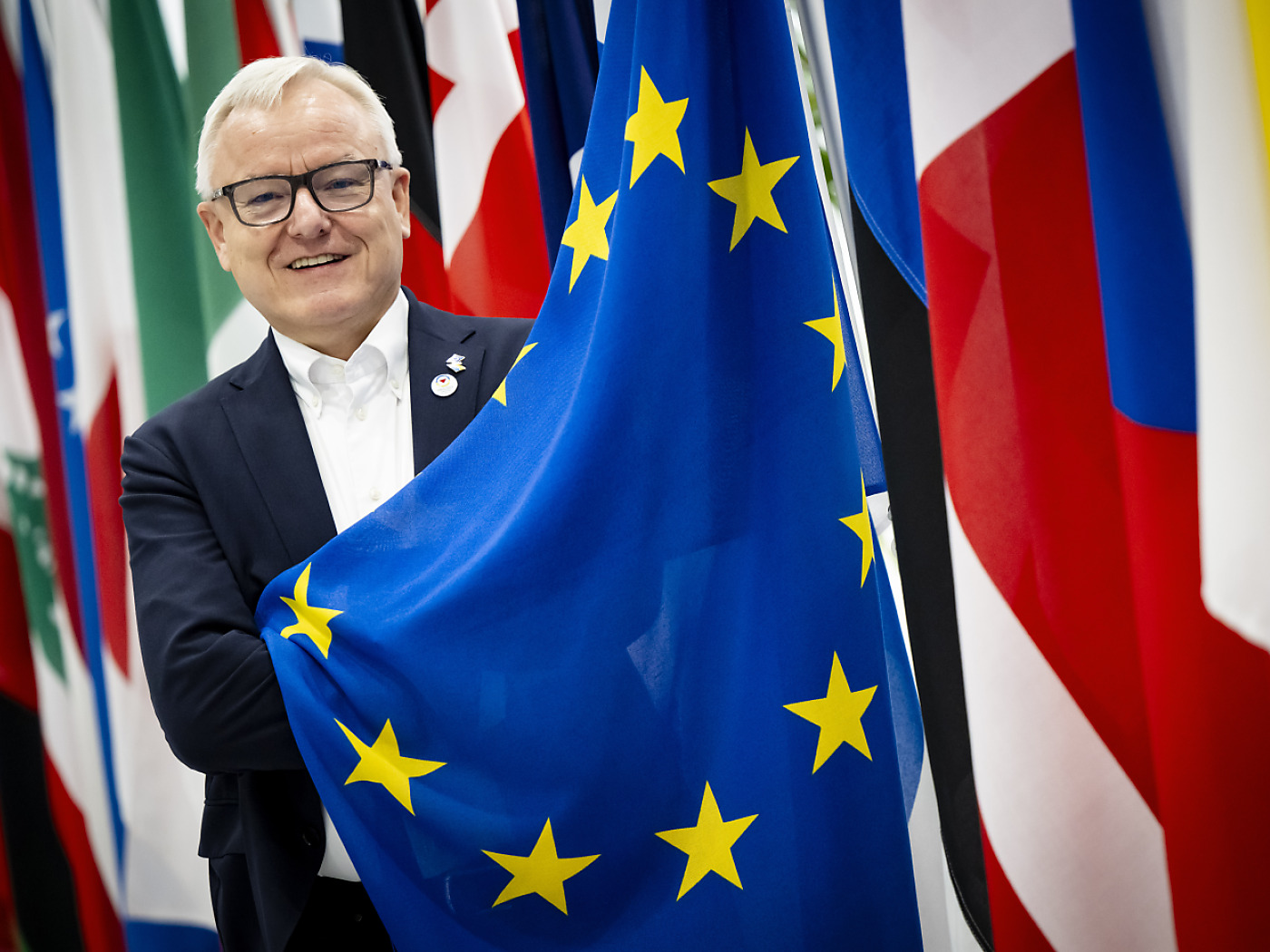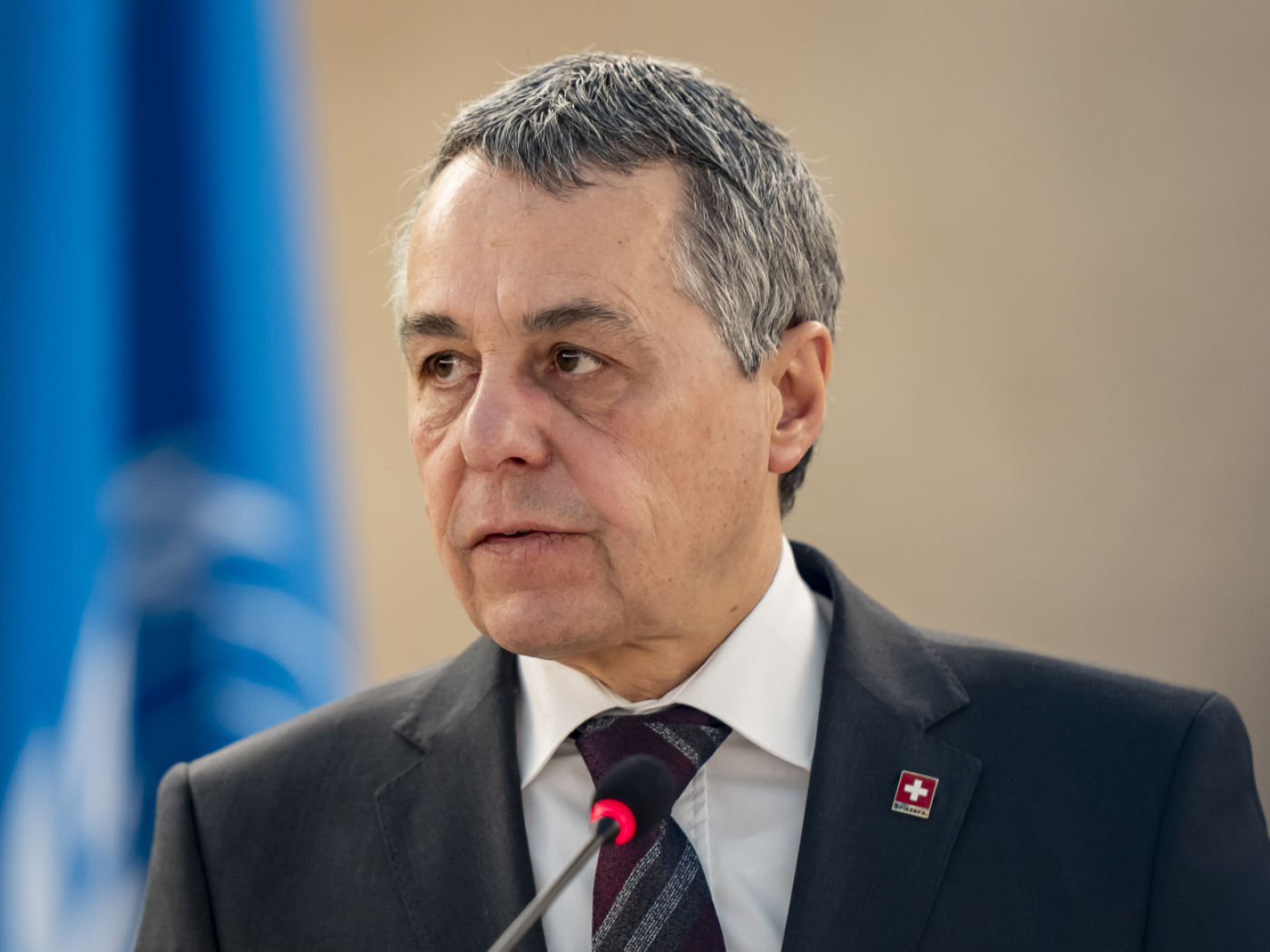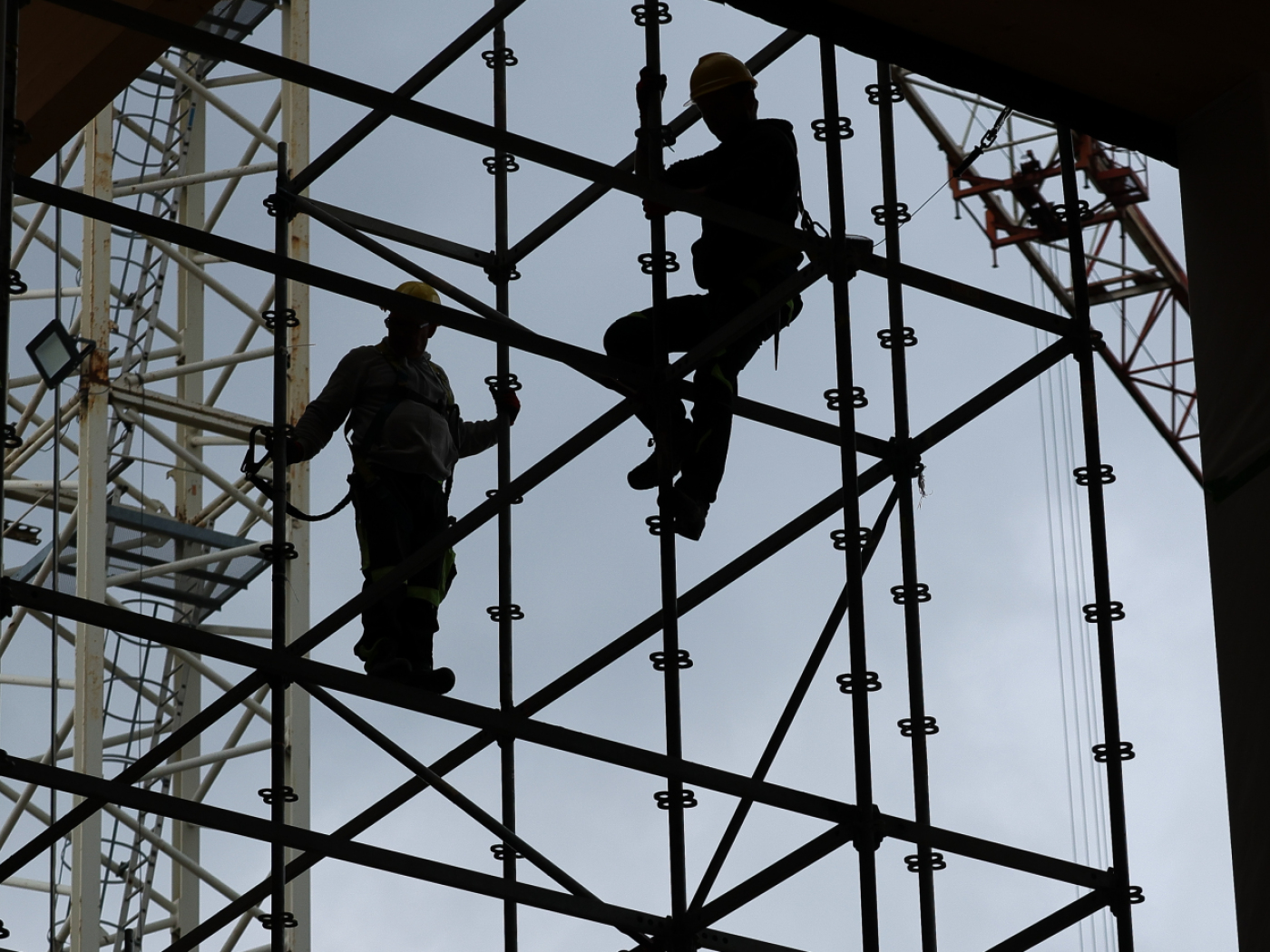EU urges countries to keep demining in Ukraine permanently on the agenda

The Lausanne Ministerial Conference on Humanitarian Demining in Ukraine led to pledges from more than 40 countries to help the war-torn country. However, these efforts must be sustained, says the head of the EU delegation at the conference.
+Get the most important news from Switzerland in your inbox
“The challenges are immense,” says Peter Wagner, director of the European Commission’s Foreign Policy Instruments Service (FPI), in an interview with the Swiss News Agency Keystone-SDA. “It’s time to take stock and avoid doing anything in the next 18 months that shouldn’t be done.”
Above all, “attention to the problem must be maintained” now that “budgets are under pressure in some countries”, explains the EU official. “It is easy to say that Ukraine is one of the most mine-contaminated countries in the world,” he said, but it is important to ensure that this situation changes. And there must also be further discussion about which areas of work should be pursued first, he said.
+ Key facts about Switzerland’s demining conference for Ukraine
The Lausanne Ministerial Conference had shown that the international community had made progress within a year in terms of its expertise on new financing options and technological innovations, Wagner said. Another positive component was that Ukraine “together with its partners – Switzerland played a key role here – was able to activate enormous support”, which was “more than usual”.
Almost all countries are now involved in humanitarian demining. For its part, the EU will continue its support in the area of governance. The legal framework and organisation in Ukraine “are not always fully adapted to the situation, even if the situation is gradually improving”, Wagner said.
+ ‘Ukraine can be a tipping point’ for ridding the world of landmines
Risk of corruption as a concern
The continuing risk of corruption must also be kept in mind, he said. This is a concern because the EU and its member states have invested around a third of the €1 billion (CHF940 million) in international aid for Ukraine in demining. “That’s a lot of money,” the German said.
Duplication must be avoided and it must be ensured that Ukrainian facilities can work, he added. Within two years, the EU has spent almost €70 million and its 27 member states another €250 million individually.
+ Japan takes a leading role in removing Ukraine’s landmines
In addition to supporting governance, Brussels also supplied equipment that was unusual for it, promoted technological innovations and helped non-governmental organizations, Wagner continued. “Our legal framework is more flexible than that of quite a few member states,” he explained.
The EU funded the assistance of the International Center for Humanitarian Demining in Geneva and other actors to establish the new Ukrainian policy on this issue by 2033. Like Switzerland and most other states, Ukraine makes demining a basic prerequisite for the country’s post-war reconstruction.
Translated from German by DeepL/ts
This news story has been written and carefully fact-checked by an external editorial team. At SWI swissinfo.ch we select the most relevant news for an international audience and use automatic translation tools such as DeepL to translate it into English. Providing you with automatically translated news gives us the time to write more in-depth articles.
If you want to know more about how we work, have a look here, if you want to learn more about how we use technology, click here, and if you have feedback on this news story please write to english@swissinfo.ch.

In compliance with the JTI standards
More: SWI swissinfo.ch certified by the Journalism Trust Initiative


















You can find an overview of ongoing debates with our journalists here . Please join us!
If you want to start a conversation about a topic raised in this article or want to report factual errors, email us at english@swissinfo.ch.